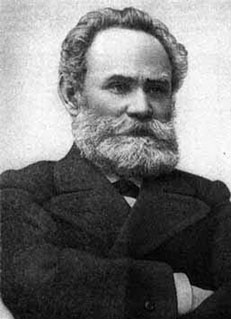

The important lectures, papers, and speeches of Pavlov dealing with conditioned reflexes and the cerebral cortex are presented in Twenty Years of Objective Study of the Higher Nervous Activity ( Behavior) of Animals: Conditioned Reflexes (1923) and Lectures on the Work of the Cerebral Hemispheres (1927). He faced a dilemma: could he embark on the study of conditioned reflexes by applying physiological methods to what was generally viewed as psychic phenomena? He opted to follow Ivan Sechenov, who considered that, in theory, psychic phenomena are essentially reflexes and therefore subject to physiological analysis.

Pavlov realized that the dogs were responding to activity associated with their feeding, and in 1901 he termed such a response a "conditioned reflex," which was acquired, or learned, as opposed to the unconditioned, or inherited, reflex.

The sight, odor, or even the footsteps of the attendant were sufficient to trigger the flow of saliva. Prior to 1900, Pavlov observed that his dogs would secrete saliva and gastric juices before the meat was actually given to them. The final phase of Pavlov's scientific career (1902-1936) was primarily concerned with ascertaining the functions of the cerebral cortex by means of conditioned reflexes. For this work Pavlov received in 1904 the Nobel Prize in physiology or medicine. Pavlov and his pupils also produced a considerable amount of accurate data on the workings of the gastrointestinal tract, which served as a basis for Pavlov's Lectures on the Work of the Principal Digestive Glands (published in Russia in 1897). He discovered the secretory nerves of the pancreas in 1888 and the following year the nerves controlling the secretory activity of the gastric glands. In the course of his second phase of scientific work (1888-1902), Pavlov concentrated on the nerves directing the digestive glands and the functions of the alimentary canal under normal conditions. His theory was that the heart is regulated by four specific nerve fibers it is now generally accepted that the vagus and sympathetic nerves produce the effects on the heart that Pavlov noticed. In his examination of cardiac activity he was able to observe the special nerve fibers that controlled the rhythm and the strength of the heartbeat.

He noted that the blood pressure of his dogs hardly varied despite the feeding of dry food or excessive amounts of meat broth. He studied the circulatory system, particularly the oscillation of blood pressure under various controlled conditions and the regulation of cardiac activity. For the nextĤ5 years Pavlov pursued his studies on the digestive glands and conditioned reflexes.ĭuring the first phase of his scientific activity (1874-1888), Pavlov developed operative-surgical techniques that enabled him to perform experiments on unanesthetized animals without inflicting much pain. Five years later he accepted the chair of physiology at the academy, which he held until 1925. In 1890 he was appointed to the vacant chair of pharmacology at the academy, and a year later he assumed the directorship of the department of physiology of the Institute of Experimental Medicine. In 1881 Pavlov married Serafima Karchevskaia, a woman with profound spiritual feeling, a deep love for literature, and strong affection for her husband. During the 1880s Pavlov perfected his experimental techniques which made possible his later important discoveries. The following year he was appointed lecturer in physiology at the academy, won the Wylie fellowship, and then spent the next 2 years in Germany. In 1883 Pavlov completed his thesis, The Centrifugal Nerves of the Heart, and received the degree of doctor of medicine. Pavlov spent the next decade in Sergei Botkins laboratory at the academy. Two years later he completed his course at the academy, and on the basis of a competitive examination he was awarded a scholarship for postgraduate study at the academy. In 1877 he published his first work, Experimental Data Concerning the Accommodating Mechanism of the Blood Vessels, dealing with the reflex regulation of the circulation of blood. In his paper "On the Nerves Controlling the Pancreatic Gland."Īfter graduating, Pavlov entered the third course of the Medico-Chirurgical Academy (renamed in 1881 the Military Medical Academy), working as a laboratory assistant (1876-1878). It was in Tsion's laboratory that Pavlov was exposed to scientific investigations, resulting There he studied inorganic chemistry under Dmitrii Mendeleev and organic chemistry under Aleksandr Butlerov, but the deepest impression was made by the lectures and the skilled experimental techniques of Ilya Tsion. Petersburg (Leningrad), electing animal physiology as his major field and chemistry as his minor. In 1870 Pavlov gained admission to the University of St.


 0 kommentar(er)
0 kommentar(er)
